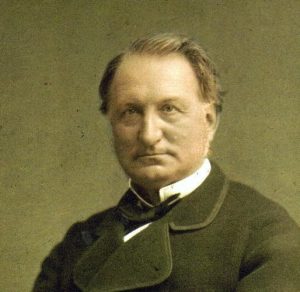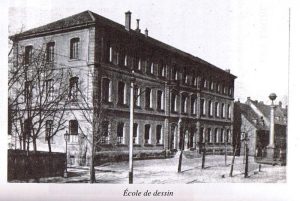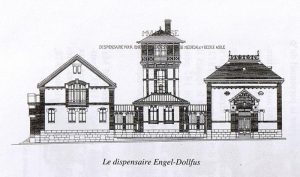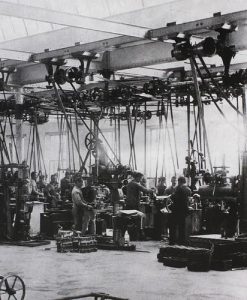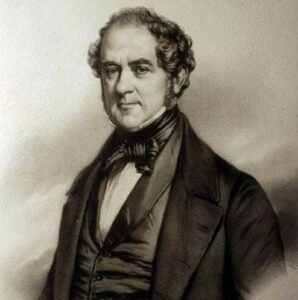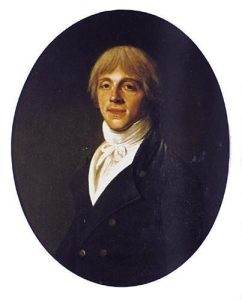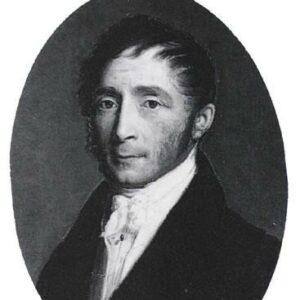The manufacturer in Mulhouse
Frédéric Engel-Dollfus was born at Cernay in 1818. After primary school studies in Cernay he went to Paris for secondary education at Lycée Henri IV. Then he became an apprentice first in Mulhouse and later in Le Havre.
On his return from a trip to England, Scotland and Ireland, he started working with the Vaucher enterprise, and then with Dollfus-Mieg and Co., manufacturers of spun silk, cotton canvas and printed fabrics. He became an associate in 1843. A believer in Saint-Simonism he reorganised the factory by mechanising and adopting new industrial processes, as well as designing new products. In particular he developed the production of sewing thread and embroidery cottons which he managed to sell on the world market. The “manufacture of chintz” which had been making a loss for a number of years, was stopped in 1888. It was not the only fabric that disappeared from Mulhouse towards the end of the 19th century.
Because of the notoriety he had acquired as an industrialist he took an active part in the economic negotiations before and after the Treaty of Frankfurt, and during the 1870 war. . He was a member of the deputation sent to Tours to the National Defence commission and to the Commission to defend the interests of the Alsatians.
The Protestant and the philanthropist
Frederic Engel-Dollfuss lent the rest room at DMC – Dollfus-Mieg and Co. for worship where the congregation went every Sunday until a temple was built in Dormach village.
His interest in Saint-Simonism induced him to found utilitarian and philanthropic charities to contribute to the moral, material or physical well-being of the working classes : “The employer owes more to his workers than simply their salaries …” and also “It is his duty to care for the moral and physical state of his workers, and this moral obligation cannot be replaced by any sort of wages, and must take precedence over individualistic interests.”
Some charities were aimed more specifically at the workers within Dollfus-Mieg and Co., such as relief and pension funds, Group Insurance, old peoples’ homes, Savings Societies to encourage saving, schools and halls which later became pre-schools.
Other charities, similar to those which already existed in England, became famous in France and abroad. . The most important was “L’Association préventive des accidents” (“The Society for the Prevention of Accidents”) aimed at studying and implementing means of protecting the workforce from machinery hazards. It was founded by several manufacturers, supervised by their inspectors, and was meant to prevent accidents. It influenced the promulgation of the 1871 laws in Germany and the 1874 laws in France that concerned the improvement of conditions for workers with regard to health and safety.
Supported by the deaconesses, Frédéric Engel-Dollfus also founded in Mulhouse a “health care centre for children” to treat poor children whose parents could not afford to pay. He himself financed the construction and maintenance of the building.
He also contributed to the setting us of a drawing school to train designers for printed fabrics and for the spinning and weaving school in Mulhouse.
The timetabling allowed this inventive and successful school to offer different kinds of training, namely theory and practice. The innovative teaching involved practical training periods with companies after some theoretical courses. This efficient way of doing things led to students being very much in demand because they were immediately ready for the workplace.
Frédéric Engel-Dollfus’s name is also linked to the “Société de protection des apprentis et enfants employés dans les manufactures” (The Society for the Protection of Apprentices and Children Employed in Manufacturing).
He was a member of numerous Boards of Directors including that of the Ecole alsacienne (Alsatian School) in Paris.

